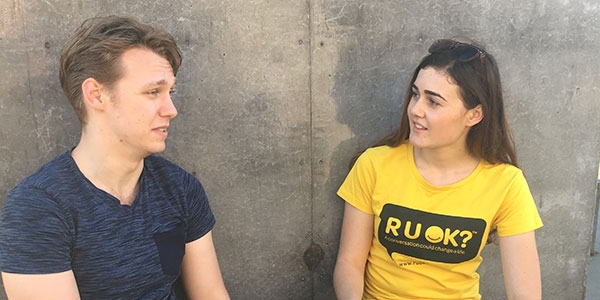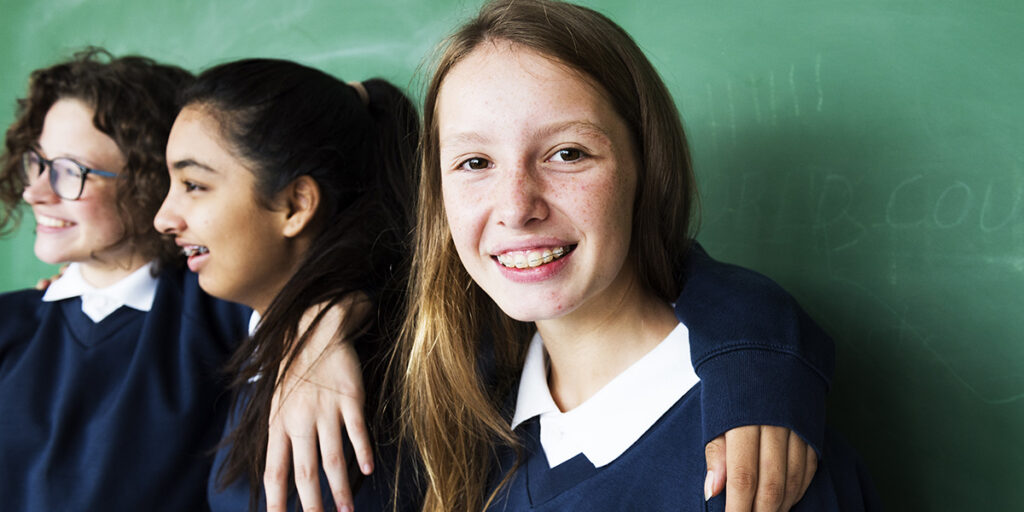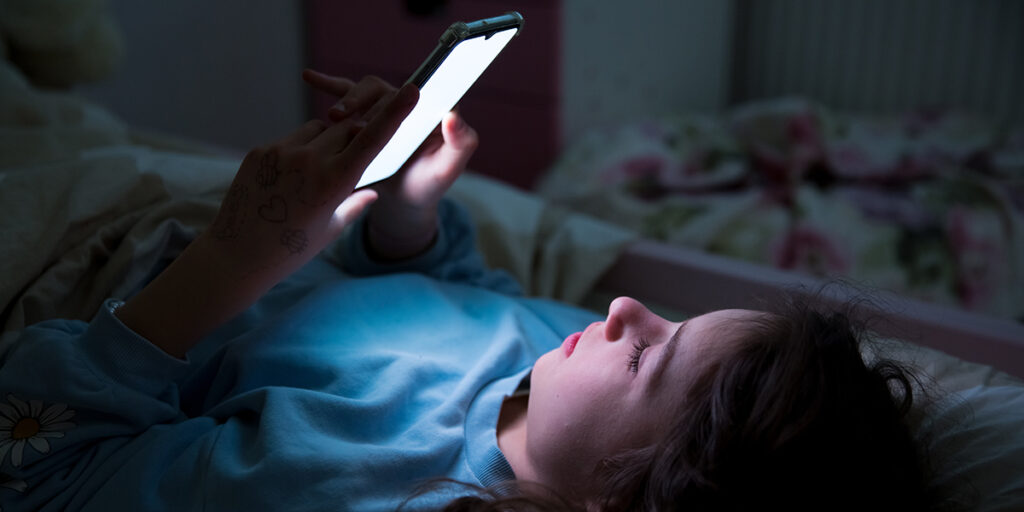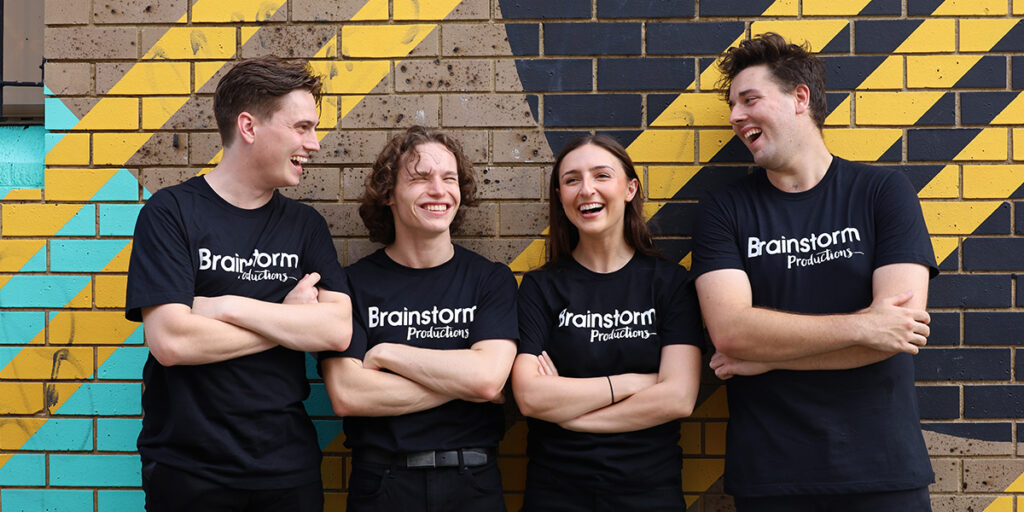Social support is central to our psychological and physical wellbeing, and can buffer against the effects of stress and illness [1]. When families, friends and communities reach out and offer support, it can have a profound impact on the lives of vulnerable people, including children and adolescents. A simple and effective way to offer that support to the people in your world is by asking, “are you OK?”
Thursday 14 September 2017 is R U OK? Day, a day which reminds us all that we have got what it takes to ask, “are you OK?”, and support those struggling with life.
In the lead up to R U OK? Day, the R U OK? Conversation Convoy has hit the road for 6 weeks, travelling 14,000 km and visiting over 20 communities, to show Australians that we’ve all got what it takes to support those struggling with life.
Brainstorm Productions is a proud supporter of R U OK? Day and an R U OK? School Partner. They provide mental health awareness programs for schools, and take this message into the classroom and beyond – showing kids that they’ve got what it takes to reach out and start a conversation.
You’ve got what it takes
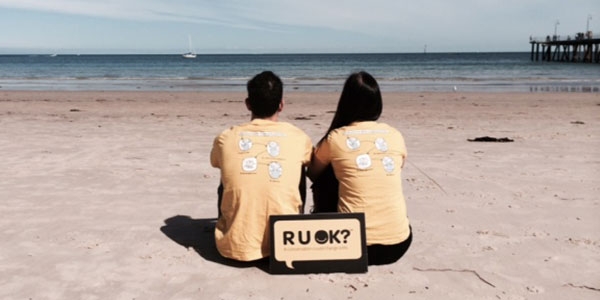
While many of us are compassionate towards a person who is struggling, reaching out to them and asking “are you OK?” can feel overwhelming, especially when we don’t know what to do, or how to help. If you’ve noticed changes in someone and want to provide support, try following these steps:
1. Ask R U OK?
When you ask a person, “are you OK?” it lets them know that someone has seen them and genuinely cares. Asking “are you OK?” provides an opportunity for connection and hope, at a time when that person may feel disconnected and alone. It’s important to pick the right time and place for the conversation. You want to choose somewhere where you’ll both be comfortable. To get the conversation flowing, pick a conversation starter that feels right for that moment and your relationship with that person. It doesn’t have to be “are you OK?”, you could ask “How are you travelling?” or “I’ve noticed you seem really tired lately. What’s been happening?”.
2. Listen
All of us have the power to be able to ask this simple question, but what comes next in the conversation is equally important. If someone opens up to you about what they’re going through, take what they say seriously and don’t try to rush the conversation. You want to give them the space to share what’s going on and feel heard. So, acknowledge that things seem tough and ask questions that encourage them to explain what’s been happening. It can help to repeat back what you’ve heard, in your own words, to make sure you’ve understood them properly. We’ve all got two ears and one mouth, so focus on using them in that ratio.
3. Encourage action
It’s important that the person leaves the conversation with some simple steps they can take to help them better manage their situation. This doesn’t mean you need to have all the answers to relieve a person’s distress. It’s about suggesting and guiding them toward next steps, like accessing support services and resources, that could help them move in a positive direction.
Not sure what help is available?
R U OK? provides information about where to find professional help. Organisations like Kids Helpline and headspace, for example, provide free online and telephone counselling for children and adolescents. ReachOut.com also provides mental health support and information for young people and their parents. Linking people in with support services can be a crucial first step in the journey towards better mental health and wellbeing. So, when you’re having the conversation always be positive about the role professional support can play.
4. Check in
Don’t make the conversation a one-off, follow up with them again soon. During the conversation, you can make a commitment to catch up with them again soon by saying, “I’m really glad we chatted about this. Let’s grab a coffee again next week.” That ongoing support can make a big difference to someone going through tough times.
Showing students they’ve got what it takes to make a difference
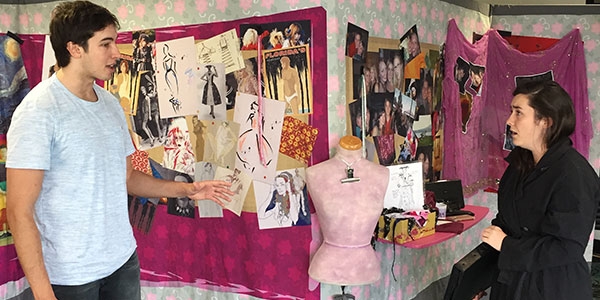
Brainstorm’s educational theatre productions remind kids that they have what it takes to make a positive difference in their friends’ lives. The characters in the shows are not superheroes. They are normal, everyday, flawed human beings. The shows demonstrate how ordinary people can make a difference through small, but meaningful actions.
Students watching Brainstorm shows like The Hurting Game and Wired have the opportunity to observe ordinary people responding to cues that a person is not OK.
In The Hurting Game, Jimmy notices that his friend Sam is struggling with depression, body image and potentially harmful behaviours. He asks her about what she’s going through, listens, and encourages her to seek professional help. He then checks in to make sure she has made an appointment. Jimmy is a flawed character, who is struggling with life in his own way; however, he still takes some time to listen to his friend and support her to take action. Samantha says “You don’t understand,” and Jimmy replies, “No, you’re right. I don’t understand. That’s why you’ve got to see a counsellor or a doctor, or tell your mum. Whatever it takes”.
In Wired, Joel becomes increasingly withdrawn and depressed, hiding away in his room feeling hopeless and unmotivated. His sister gives him a hard time, and he has lost contact with his friends. Lexi is feeling stressed, anxious and overwhelmed by the pressures of Year 12. When the two characters meet, they start to share their experiences and listen to each other. They feel more connected and understood. Through these interactions, they begin to make changes and seek help.
The characters in Brainstorm’s shows have what it takes, and by watching the performances, students see they too have what it takes to reach out.
Encouraging hope and empathy for the next generation
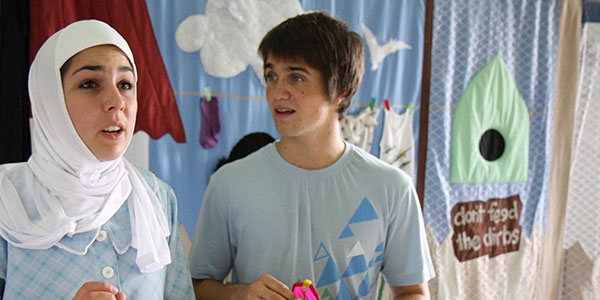
Brainstorm Productions tell stories that promote hope and empathy, supporting mental wellbeing in schools across the country. Throughout the year, they visit hundreds of primary schools and high schools, empowering students to make a difference through meaningful interpersonal connections and positive actions.
Live theatre is an effective emotional wellbeing resource, which allows students to observe interactions from a different perspective. The students pick up body language, non-verbal cues and dialogue that indicate a person is struggling. They observe a character making a subtle bid for connection, and see how these opportunities can be easily lost. But they also witness the power of two characters connecting in a meaningful way.
Brainstorm’s shows break conversations down into nuanced moments and reactions, and it is the actor’s job to convey these moments with clarity. This may help students be more mindful of subtle cues in their own interactions, and provide opportunities for behavioural change. These skills may be particularly helpful for kids who struggle to read interpersonal cues and navigate social interactions.
For both younger and older children, Brainstorm’s shows encourage students to notice how others are feeling, have empathy and check in with friends and family. This may help normalise these questions and conversations, so that kids feel more confident to take that step and ask R U OK? Follow-up pastoral care activities and related emotional wellbeing activities help primary and secondary students develop mental health and resilience strategies, so they are in a better position to help their friends.
By using storytelling, music and real-life actors, Brainstorm Productions help kids see they can make a meaningful difference to the lives of others.
How to ask “are you OK?”: A guide for youth
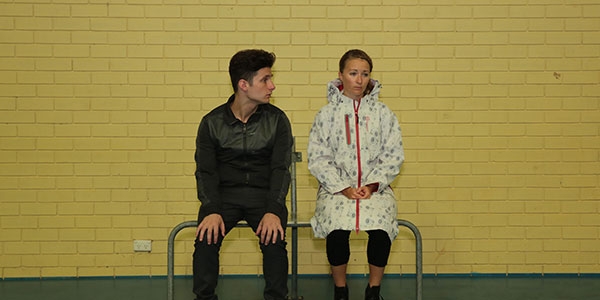
Practical strategies give kids confidence to reach out to their friends or family members.
R U OK?’s How to Ask page is a helpful resource for kids who are worried about someone. It suggests being relaxed, and friendly when approaching a friend or family member. Identify things that have made you concerned. If they push back, avoid confrontation, but let them know you are available to chat.
When they are ready to talk, listen without judgment. Allow the person to speak in their own time. Be patient.
R U OK? gives young people practical information about what to do if the answer is “no, I’m not OK”. For example, encouraging action by asking the person how they can support them. Helping the person identify strategies that have worked for them in the past. But if the conversation is too big, seeking professional support, or speaking to an adult. It may be really comforting for young people to know that they are not expected to ‘fix’ the problem for their friend or family member, but they can help them get support.
People’s struggles are rarely simple, and can last a while. R U OK? reminds kids to check in later, to see how their friend is doing and ask what support they can provide.
By providing practical strategies and resources, organisations like R U OK? and Brainstorm Productions aim to help ordinary people make a meaningful difference to someone struggling with life.
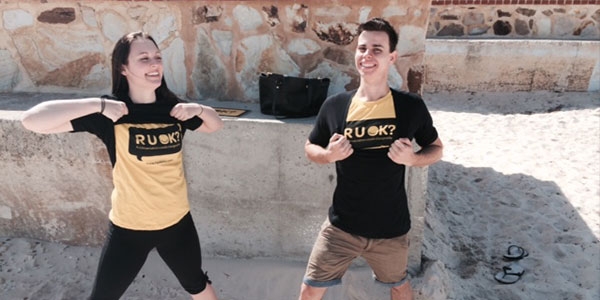
References
[1] Ozbay, F., Johnson, D.C., Dimoulas, E., Morgan, C.A., Charney, D., & Southwick, S. (2007). Social support and resilience to stress: From neurobiology to clinical practice. Psychiatry, 4(5), 35-40.

